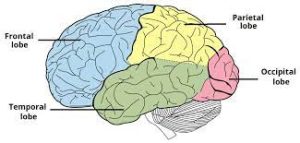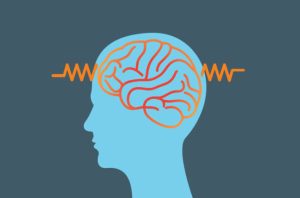This is how the AI article summary could look. Lorem ipsum dolor sit amet, consectetur adipiscing elit, sed do eiusmod tempor incididunt ut labore et dolore magna aliqua. Ut enim ad minim veniam, quis nostrud exercitation ullamco laboris nisi ut aliquip ex ea commodo consequat.
10 Common Brain Problems – When to Worry and When to See a Doctor

Here are 10 common brain problems; when to worry, and when to see a doctor:
1. Memory Loss

- Symptoms: Forgetting recently learned information, important dates, or events; repeatedly asking for the same information; trouble with problem-solving
- When to worry: If memory loss disrupts daily life, or if you notice changes in mood or behaviour
- When to see a doctor: If you experience persistent memory loss, or if you notice changes in cognitive function.
2. Brain Fog
- Symptoms: Lack of focus, poor memory, difficulty making decisions
- When to worry: If brain fog persists or worsens over time
- When to see a doctor: If brain fog affects daily life, or if you experience other symptoms like headaches, dizziness, or nausea. This can be a sign of, Long COVID, for example.
3. Stroke (CVA, cerebro-vascular accident)

- Symptoms: Sudden confusion, trouble speaking or understanding speech; sudden numbness or weakness, especially on one side of the body (e.g. face, arm, or leg; or combination)
- When to worry: If you experience any symptoms of a stroke
- When to see a doctor: Immediately, a stroke is a medical emergency.
4. Traumatic Brain Injury (TBI; complicating head injury)
- Symptoms: Loss of consciousness, confusion, difficulty focusing, memory loss
- When to worry: If you experience any symptoms after a head injury
- When to see a doctor: Immediately, as TBIs can be serious and require prompt medical attention.
Note. Most people with a mild brain injury do not need to see a doctor.
5. Migraines
- Symptoms: Severe headaches, sensitivity to light and sound, nausea and vomiting
- When to worry: If migraines interfere with daily life or are accompanied by other symptoms like confusion or weakness
- When to see a doctor: If you experience frequent or severe migraines.
6. Meningitis

- Symptoms: Severe headache, fever, stiff neck, sensitivity to light, confusion or altered mental state, rash (in some cases)
- When to worry: If you or someone you know experiences severe symptoms, such as a severe headache, stiff neck, or sensitivity to light – especially if symptoms develop rapidly (over hours or days)
- When to see a Doctor: Immediately. If you suspect meningitis, seek medical attention right away. Meningitis can progress rapidly and lead to serious complications or death if left untreated. Call 999 or go to A&E.
7. Vertigo and Dizziness
- Symptoms: Sensation of spinning or imbalance
- When to worry: If symptoms persist or worsen over time
- When to see a doctor: If you experience persistent vertigo or dizziness, or if you notice other symptoms like hearing loss or tinnitus.
8. Seizure (epilpetic fit)
- Symptoms: Sudden loss of consciousness, convulsions, or changes in behaviour
- When to worry: If you experience any symptoms of a seizure
- When to see a doctor: If it is a first ever fit, or fits persist for over 20 minutes, you should see a doctor immediately, as a seizure can be a medical emergency.
9. Alzheimer’s Disease (commonest type of dementia)
- Symptoms: Persistent memory loss, confusion, changes in behaviour
- When to worry: If symptoms affect daily life or relationships
- When to see a doctor: If you experience persistent symptoms or if you are concerned about cognitive decline.
10. Parkinson’s Disease
- Symptoms: Tremors, slowing down, lack of facial movement, stiffness, loss of balance or falls
- When to worry: If symptoms affect daily life or mobility
- When to see a doctor: If you experience typical symptoms or if you are concerned about motor function.










